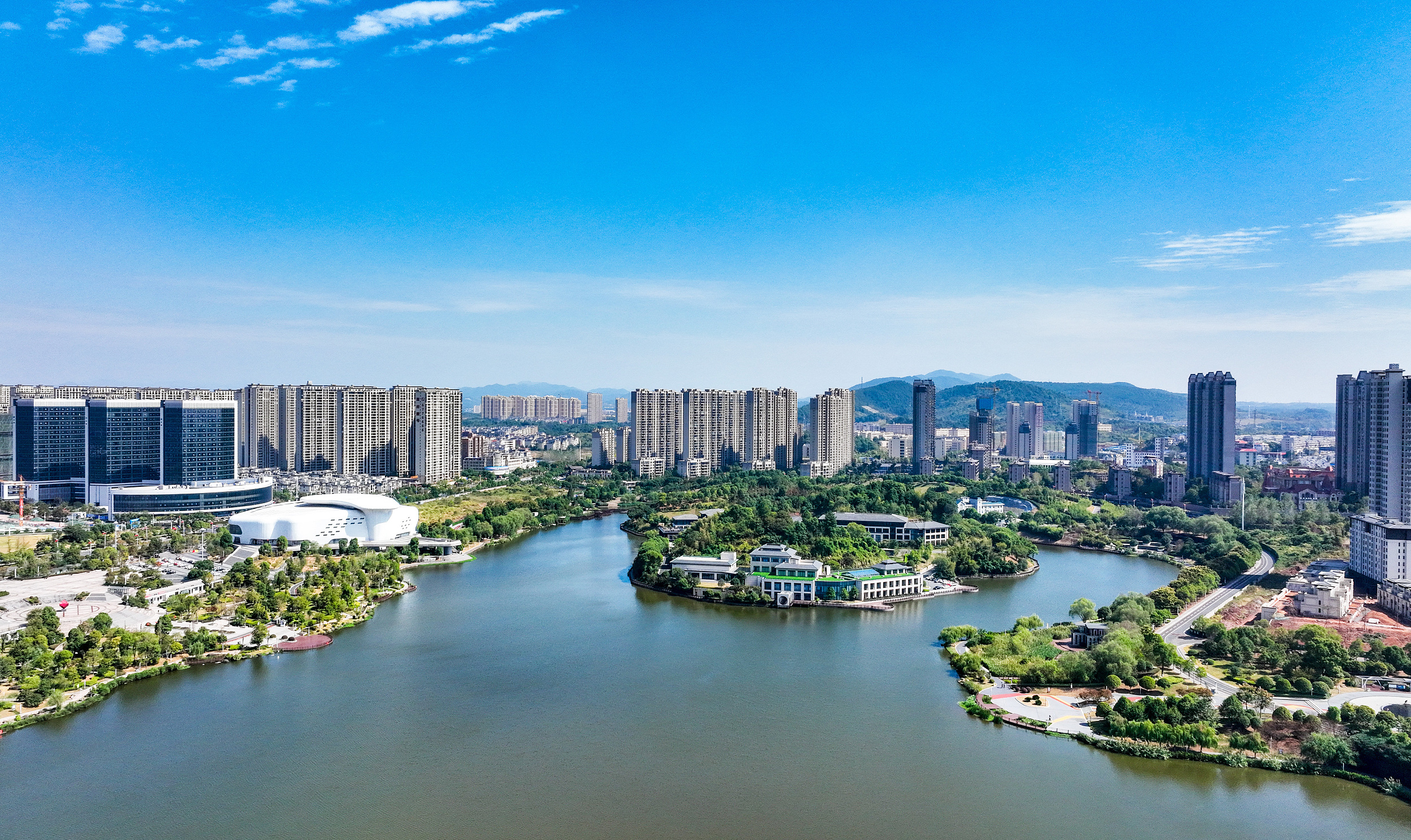
A?view?of?Pingxiang?city,?Jiangxi?province.?(PHOTO:VCG)
By?Staff?Reporters
Mohammad Saiyedul Islam, a Doctoral Fellow at the School of International Trade and Economics at Jiangxi University? of Finance and Economics, came to China for further study in 2018 from Bangladesh. Recently, Islam shared his thoughts on his China story with S&T Daily.
S&T Daily: What are your impressions of China?
Mohammad Saiyedul Islam:My first impression of this country is that life is very convenient, flexible and safe because of the infrastructure development, advanced technology, and sound governance system. Furthermore, China is a land of opportunity and has created opportunities for itself and people worldwide. Over the past decades, China has seen remarkable changes nationwide in economic growth, environmental protection, and social development.
Recently, I visited Ningxia Hui Autonomous Region at the invitation of the Chinese People's Association for Friendship with Foreign Countries, where I saw something miraculous. They have changed a big desert into a green area and changed people's lives by cultivating grapes in the desert. Millions of impoverished rural residents living under the current poverty line in China have all been lifted out of poverty. Looking at the past and present, and China and foreign countries, it is only China that has achieved such excellent development achievement in such a short time.
S&T Daily: What do local people and culture in China attract you most?
China is a huge country with a vast and profound culture of more than 5000 years. In my opinion, China is a land of diversity and freedom. Including Han nationality, there are 56 ethnic groups in China and minority groups in China enjoy equal rights.
I have visited many homes of ethnic minorities to learn about their lifestyles. I saw with my own eyes how free they are and what the Chinese government has done for them, encouraging them to expand their distinct culture around the world. People are living here very peacefully. There are no conflicts with each other. This is the beauty of China.
S&T Daily: What factors persuaded you to study in China and how do you think about China's academic environment?
Going abroad for further study helps students discover more of themselves and gives them opportunities to broaden their horizons. China is becoming a fast-rising star in the global educational field.
More importantly, Chinese universities offer high-quality education to students at a very affordable tuition fee. The Chinese government, universities, and other institutions offer different kinds of scholarships to support international students, which is necessary, especially for developing or underdeveloped countries. In recent years, China and relevant countries along the Belt and Road Initiative (BRI) have developed close educational cooperation and cultural exchanges, such as setting up projects to train high-skilled talent from countries along the BRI.
S&T Daily: What changes have impressed you most during your stay in China, especially regarding the progress China has made in sci-tech?
Although the U.S. is still in a leading position in some fields, if you look at science and technology, China's development is impressive. For example, mobile payments are the norm in China and everything is cashless. I never need a wallet as long as I have got my phone. Almost anything can be paid for using apps like Alipay and Wechat.
At the same time, I have visited some rural areas to learn and experience how China revitalized these. I saw that farmers are using advanced technology to [assist with] agricultural production. They are using drones to spread pesticides on agricultural land. Villagers are selling their products through live streaming, using 5G Internet, and e-commerce is thriving.
Even during the pandemic, by using advanced technology, we can get updated information on how to prevent the virus.
I think China can share its advanced technology and experiences with other countries, such as in the field of agricultural technology, share experiences on how to eradicate absolute poverty in an all-around way and revitalize rural areas with the help of technology.
The trio will conduct a series of experiments in fields such as life science, fluid physics, combustion science and materials science. Notably, this is the first time that fruit flies have been taken on a Chinese space mission as experimental subjects. What made scientists choose fruit flies? What experiment will they undergo?
